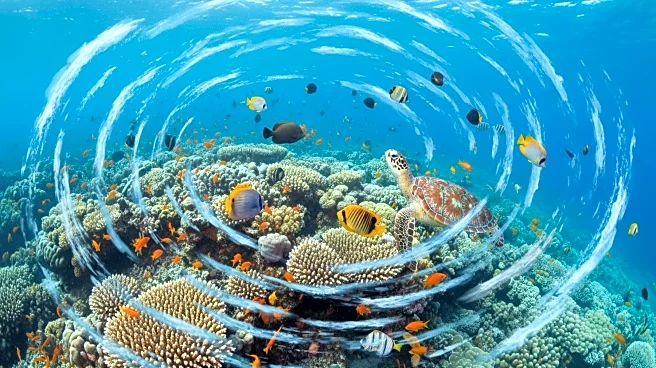What is the story about?
What's Happening?
A recent study highlights how marine heat waves are affecting the ocean's ability to sequester carbon. The research, conducted in the northeastern Pacific Ocean, found that heat waves from 2013 to 2015 and 2019 to 2020 altered the composition of phytoplankton and zooplankton, disrupting the carbon cycle. These changes prevent carbon from being transported to the ocean depths, where it would typically be stored away from the atmosphere. The study utilized data from Biogeochemical Argo floats, which provided insights into the ocean's chemistry over a decade.
Why It's Important?
The ocean plays a critical role in regulating the Earth's climate by absorbing a significant portion of carbon dioxide emissions. Disruptions in this process due to marine heat waves could exacerbate climate change by allowing more CO2 to remain in the atmosphere. This situation poses a threat to marine ecosystems and the global climate, as the ocean's capacity to act as a carbon sink is compromised. Understanding these dynamics is crucial for developing strategies to mitigate climate change impacts.
What's Next?
Further research is needed to monitor marine heat waves in other regions and assess their impact on the ocean's carbon sequestration capabilities. Scientists will continue to use advanced technologies like Biogeochemical Argo floats to gather data and improve understanding of these processes. The findings may influence climate policy and conservation efforts, emphasizing the need to reduce greenhouse gas emissions and protect marine ecosystems.
Beyond the Headlines
The study highlights the interconnectedness of atmospheric and oceanic systems, illustrating how changes in one can significantly impact the other. It also raises awareness about the potential long-term effects of climate change on marine biodiversity and the importance of preserving ocean health for future generations.
















